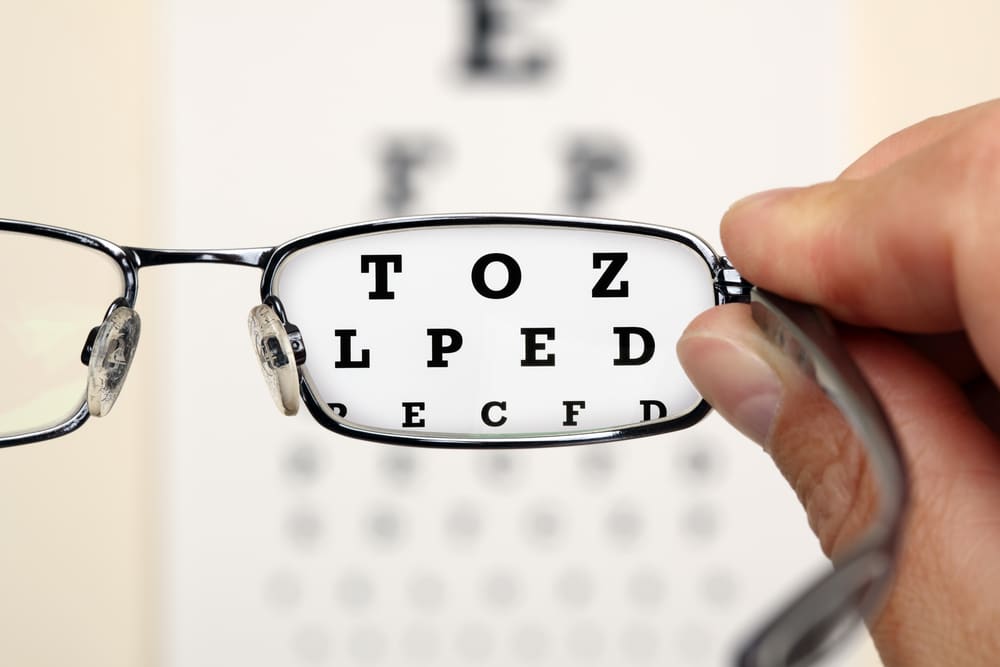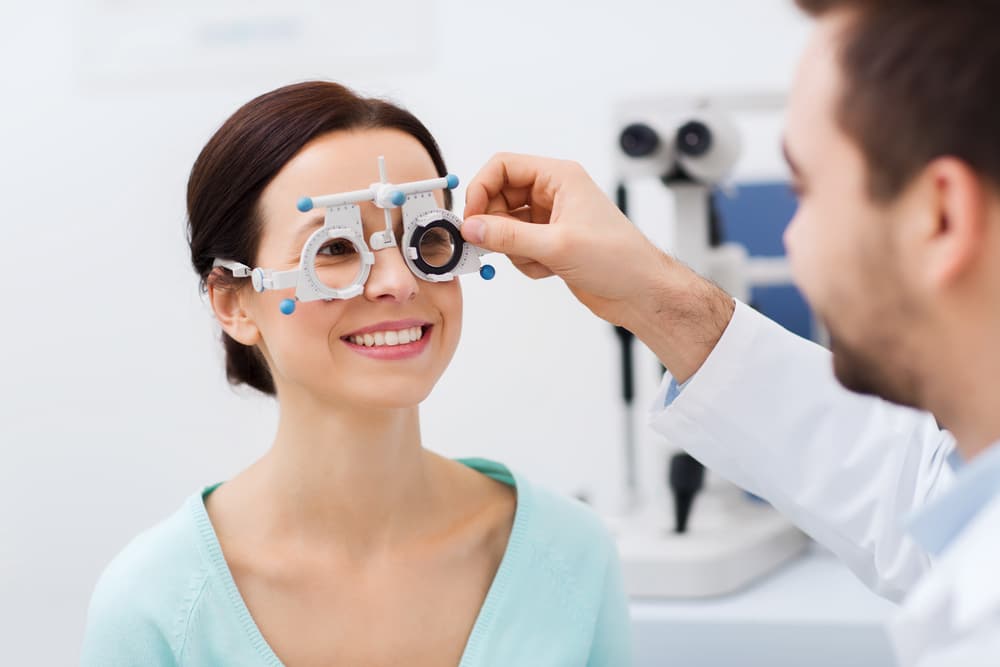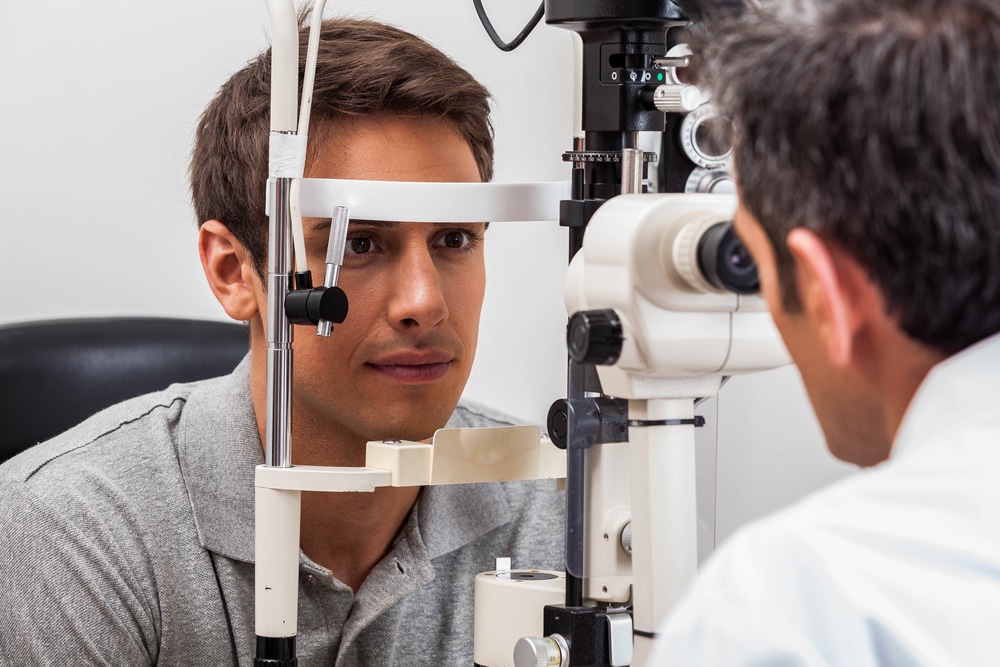What Should I Expect at My Next Eye Exam?
- Posted on: Feb 26 2024
Frequent eye exams are essential in safeguarding your vision and general health. They’re painless, minimally invasive, and take around an hour to complete.
If it’s time for your next eye exam, it helps to know what to expect. That way, you can go prepared and get the most out of your appointment.
Keep reading to learn more about the importance of eye exams and what to expect at your upcoming appointment!
Importance of Eye Exams
Routine eye exams go beyond keeping your eyes and vision healthy. Because your eyes are the windows to your body, the health of your eyes can give your doctor important insights into your overall health.
Frequent eye exams play a crucial role in detecting signs of underlying health conditions. Through regular eye examinations, your eye doctor can spot signs of serious health conditions like diabetes, high blood pressure, high cholesterol, and autoimmune disease, which are best managed when caught early.
Tests and Measurements You Can Expect at Your Eye Exam
Throughout your eye exam, you’ll undergo a series of tests and measurements, all of which will evaluate various aspects of your eye health and vision quality. The components of your eye exam may include:
Medical History
Before the tests start, your eye doctor will review your family and medical history. This may include asking you questions such as:
- When was your last eye exam?
- What medications are you taking?
- Are you allergic to any medications?
- Have you been experiencing any symptoms?
- Have you had any previous surgeries?
- Do any eye or health conditions run in your family?
- Do you wear contact lenses or glasses?
- Do you have any health conditions?
It’s easy to forget your history, family history, and all the symptoms you’ve had if you don’t put them on paper. You can take the pressure off by making notes ahead of time.
Anytime you notice any vision changes, jot them down together with how long you’ve had them. Gathering all this information enables your eye doctor to tailor a plan for testing your vision and eyes and offer the best diagnosis.
If you already wear glasses or contact lenses, bring them with you so that your eye doctor can determine if you require a new prescription.
Visual Acuity Test

The letters or numbers are arranged in rows and reduce in size as you move down the chart. In this test, you’ll stand or sit twenty feet away from the chart and cover one eye.
You’ll then read out loud the letters pointed at you with your uncovered eye. The same process is repeated for your other eye.
Your eye doctor will ask you to read letters that get progressively smaller until you can’t correctly distinguish letters. The test results will indicate whether you require prescription lenses and if you need further tests.
Refraction Test
A refraction test is an exam that measures how light refracts or bends through your eyes. This enables your eye doctor to know the best prescription for visual aids if needed.
The exam can diagnose refractive errors such as astigmatism, farsightedness, and nearsightedness. A refractive error means that light isn’t bending correctly when it passes through your eye lens.
During the refractive test, your eye doctor will ask you to look through a phoropter. A phoropter looks like a huge mask with holes.
Looking through the holes, you’ll see a chart with letters. The chart is put twenty feet in front of you.
Your eye doctor will then flip between different pairs of lenses and repeatedly ask you which ones make your vision clearer. Once done, the test results will tell your eye doctor whether you need glasses or contacts and, if so, the type of prescription you require to achieve the clearest possible vision.
If you wear visual aids, the refraction test can tell your eye doctor whether you should update your prescription to see more clearly.
Ocular Motility
An ocular motility test assesses the movement of your eyes. Your doctor will check if your eyes are properly aligned.
They’ll also look to see if your eye muscles are working as they should. The ocular motility test is a simple exam.
Your eye doctor will have you follow a moving object, such as their finger or a pen, with your eyes while keeping your head still. By watching you track the object visually, your doctor can determine if your eyes are correctly aligned or not.
Issues with eye movement can lead to eye strain, double vision, and other vision problems.
Slit Lamp Exam
A slit lamp is a high-intensity light used alongside a low-powered microscope. It allows your eye doctor to have a detailed view of various structures at the front and back of your eye.
For this exam, your eye doctor will likely apply eye drops containing a special dye known as fluorescein. Fluorescein makes any abnormalities like damage, scratches, or injury on the surface of your cornea more visible.
Your eye doctor may also dilate or widen your pupils using dilating eye drops. If your eyes are dilated, you shouldn’t drive after your exam.
Your eyes will be very sensitive to light, and your vision will be blurry for several hours. Bring UV-protective sunglasses to the eye exam and arrange for someone to drive you home.
You’ll sit in the examination chair in front of the slit lamp, where you’ll rest your forehead and chin. Your eye doctor will sit facing you and observe your eyes through the microscope.
They’ll then switch on the slit lamp and focus a narrow beam of light toward your eyes. Your eye doctor will look at the intricate structures of your eyes.
A range of eye conditions and issues can be detected through a slit lamp exam, like cataracts, macular degeneration, and corneal disease or injury, among many others.
Comprehensive Eye Exams at Jacksonville
Frequent eye exams at Jacksonville Eye Center are crucial to your eye and general health. We offer comprehensive eye exams to ensure you enjoy a lifetime of the best vision possible.
Are you due for your next eye exam? Schedule your appointment at Jacksonville Eye Center in Jacksonville, FL, today to get on the path to healthy eyes and vibrant vision.
Posted in: Eye Care Services, Eye Exam


